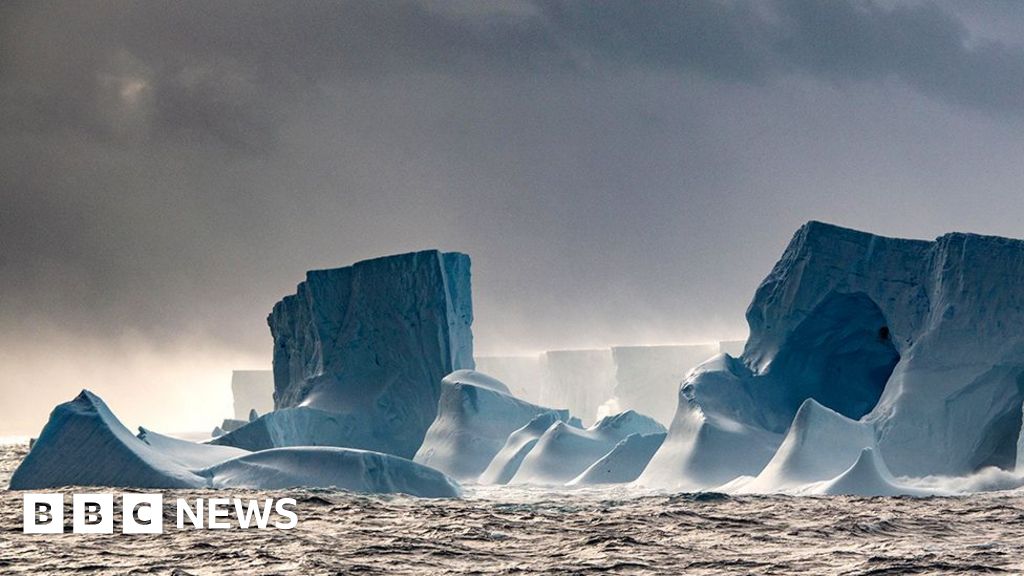- cross-posted to:
- [email protected]
- [email protected]
- cross-posted to:
- [email protected]
- [email protected]
Something remarkable has happened to A23a, the world’s biggest iceberg.
For months now it has been spinning on the spot just north of Antarctica when really it should be racing along with Earth’s most powerful ocean current.
Scientists say the frozen block, which is more than twice the size of Greater London, has been captured on top of a huge rotating cylinder of water.
For three decades it was a static “ice island”. It didn’t budge. It wasn’t until 2020 that it re-floated and started to drift again, slowly at first, before then charging north towards warmer air and waters.
Prof Taylor showed how a current that meets an obstruction on the seafloor can - under the right circumstances - separate into two distinct flows, generating a full-depth mass of rotating water between them.
A23a is a perfect illustration once again of the importance of understanding the shape of the seafloor.
A23a’s behaviour can be explained because the ocean bottom just north of South Orkney is reasonably well surveyed.
That’s not the case for much of the rest of the world.



Maybe this archive link will make things easier for you